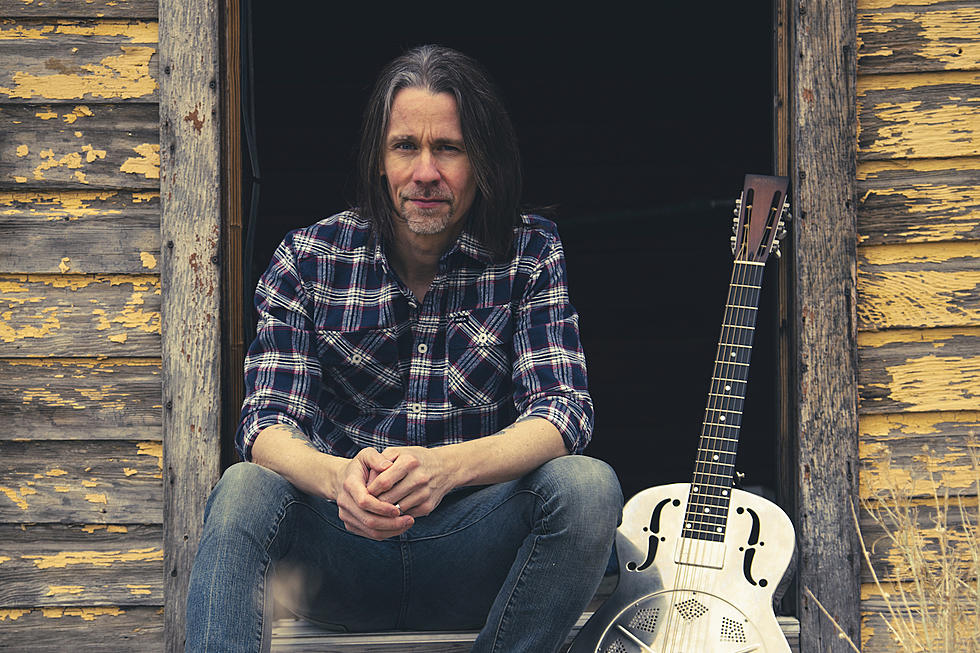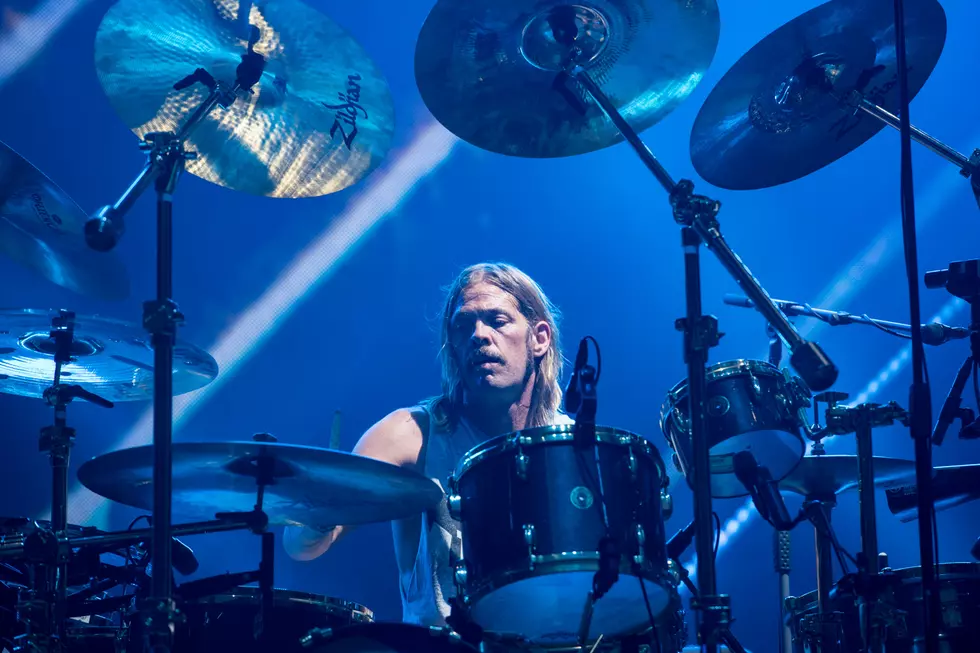
Myles Kennedy Reaches Vulnerable Catharsis on Deeply Personal ‘Year of the Tiger’ Solo Release – Album Review
Those pipes! Myles Kennedy's powerful voice has been giving the extra "omph" to Slash and Alter Bridge's music for over a decade; he's distinguished himself as one of the top and most beloved singers in the genre, as evidenced by his three past Vocalist of the Year wins in the reader-voted Loudwire Music Awards. But those expecting Kennedy to blow you away with his booming vocals on his new solo album might be surprised. Kennedy's Year of the Tiger album is not a Slash rehash or Alter Bridge minus Mark Tremonti. But what it is, is a stellar, more nuanced and autobiographical release that shows the singer as an artist taking a risk, being his most vulnerable while telling a deeply personal tale of a tragedy from his youth that influenced and informed the rest of his life.
“My family was very involved in the Christian Science church,” Kennedy said about his family's faith. The church does not believe in medical treatment for ailments, believing prayer to be the primary form for healing. Sadly, the singer lost his father at the age of four. “When he became ill, he chose not to seek medical attention, and passed away a few months later. By all accounts, my father was a good, honest man, but I still struggle with the choices he made which ultimately led to his death," says Kennedy, who dives into the anger, grief, the search for understanding and the journey to acceptance in order to move forward, both for himself and for his family.
Right from the opening notes of the title track, Year of the Tiger distinguishes itself from what most know of Kennedy's catalog to date. With Led Zeppelin's "Battle of Evermore"-esque guitar and mandolin, the song sets the tone for what's to come. Rather than a driving rock album, Year of the Tiger indulges Kennedy's desire for something pulling from a variety of influences -- painting with Americana, blues and country tones. The title track introduces the listener to the story, with Kennedy addressing his father's death through the eyes of his mother who just lost her husband and her ordeal of coping in the aftermath with her children and the tough choices she was forced to make.
"The Great Beyond" is arguably the album's most ambitious track, with Kennedy filling the song with more string backing instrumentation and delivering a more Middle Eastern-feel. It's one of the few times you really hear him let the big dog bite, as his vocal performance is more reserved in most cases, fitting with the song.
The "voice" in the album alternates between Kennedy speaking from his mother's point of view and speaking for himself, and it's clear that Year of the Tiger was a cathartic experience for the singer. "Blind Faith" truly lays it all on the line for Kennedy, who sings emotionally raw lines like, "Cause faith can be blind / But it cannot justify / The tragedy of love’s demise we can’t replace / No final rise / There will be no last goodbye / Like a whisper in the night you slipped away” and “I know you’re steadfast in your ways / You never compromise your faith / But is it worth it in the end / To never see my face again.” Relying on a bluesy slide guitar throughout, Kennedy delivers one of the album's most powerful moments with the song.
The Chris Whitley-leaning "Ghost of Shangri-La" is another highlight, as Kennedy once again adopts the perspective of his mother, who decided to move the family after their home was robbed shortly after his father's death. “This house is getting colder / The shadows will not die / Their haunting every corner / The ghost of Shangri-la,” sings the vocalist on the moody rocker.
Coming to terms with his father's death clearly affected the singer growing up, with the soulful "Haunted by Design" addressing his struggles to come to terms not only with his father's death, but with his own questions about faith -- all set against a country-leaning backdrop and accentuated with the lap steel.
The album feels like it's following Kennedy's own journey, and eventually it turns a bit more upbeat. "Mother" speaks with more urgency as the singer celebrates his mother's courage in the year's after his father's death. The beautifully intimate "Love Can Only Heal" is a late album standout, with the singer starting to turn the corner with the sentiment, "Never mind the pain / Cause love can only heal / If only you could trade the dark for light it might reveal / That there's a place inside / Don't be afraid to feel / Cause love can only heal."
Year of the Tiger ends on a more hopeful note of beginning to move forward. "Songbird" is a more upbeat penultimate track, while the more reserved album closer "One Fine Day" finds Kennedy offering the cathartic, "This bitter end, let it go, let it go, let it go."
“This was something I had wanted to dive into throughout my career,” Kennedy stated of the subject matter for the album. “It just took decades to muster up the courage. Beneath the surface, the wounds were pretty raw, but it just had to be done.” While the album is about Kennedy's journey, it's one that is satisfying to us as listeners.
More From Loudwire









